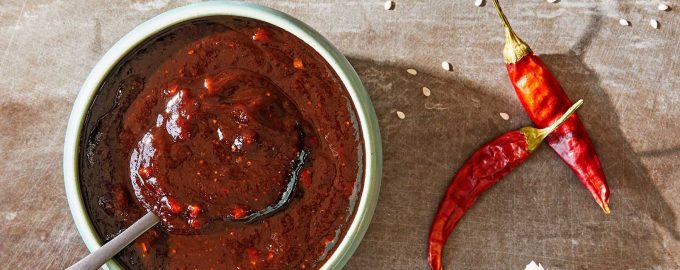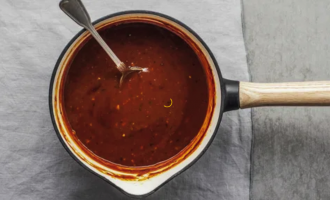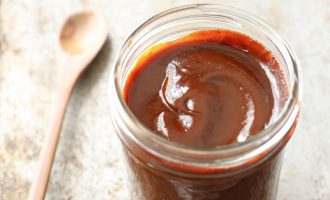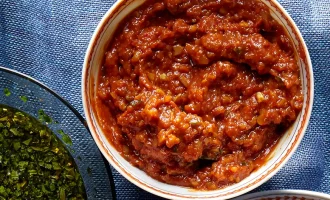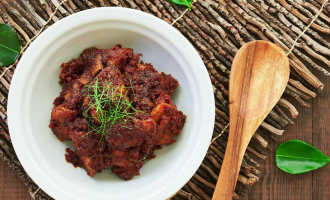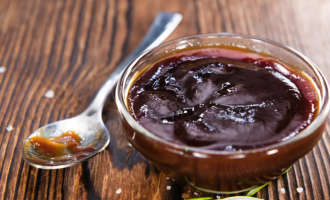- 500g beef (sirloin or ribeye), thinly sliced
- 1/2 onion, thinly sliced
- 3 cloves garlic, minced
- 2 tablespoons soy sauce
- 1 tablespoon sesame oil
- 1 tablespoon brown sugar
- 1 tablespoon honey
- 1 tablespoon rice wine (mirin)
- 1 tablespoon sesame seeds
- 2 green onions, chopped
- 1/2 teaspoon black pepper
-
In a mixing bowl, combine the soy sauce, sesame oil, brown sugar, honey, rice wine, minced garlic, sesame seeds, black pepper, and chopped green onions. Mix well until the sugar is dissolved and the ingredients are well combined.
-
Add the thinly sliced beef to the marinade and toss to coat. Allow the beef to marinate for at least 30 minutes, or you can refrigerate it overnight for a more intense flavor.
-
Heat a large skillet or grill pan over medium-high heat. Add the sliced onions and cook for a few minutes until they become translucent.
-
Add the marinated beef to the skillet and cook for about 3-4 minutes, stirring occasionally, until the beef is cooked through and slightly caramelized.
-
Serve the bulgogi sauce with steamed rice, lettuce leaves, and other optional side dishes such as kimchi, pickled vegetables, or Korean-style salads. Wrap a piece of bulgogi in a lettuce leaf, add some rice and your preferred side dishes, and enjoy!
The bulgogi sauce is served with steamed rice and lettuce leaves, creating a flavorful and satisfying Korean-style wrap. It is also commonly accompanied by various side dishes, such as kimchi and pickled vegetables, to add contrasting flavors and textures to the meal.
Bulgogi sauce is a savory and slightly sweet marinade that infuses the beef with a rich umami flavor. The combination of soy sauce, garlic, sesame oil, and brown sugar creates a well-balanced sauce that perfectly complements the tender and juicy beef. The sauce caramelizes during cooking, adding depth and complexity to the dish.
Bulgogi is a popular Korean dish known for its tender and flavorful beef. It is often enjoyed as a main course or as part of a Korean barbecue feast. The sauce is versatile and can be used to marinate other meats or even vegetables for a vegetarian version.
Facts about bulgogi sauce:
- Traditional Preparation: Bulgogi sauce is an integral part of Korean cuisine and is commonly used in the preparation of bulgogi, a popular Korean dish. The sauce is typically made by combining soy sauce, sesame oil, sugar, garlic, and other seasonings to create a flavorful marinade.
- Marinade Tenderizer: The sauce serves not only to enhance the taste but also to tenderize the meat. The combination of soy sauce and other ingredients helps to break down the proteins in the beef, resulting in a more tender and succulent texture.
- Sweet and Savory Flavor: Bulgogi sauce strikes a balance between sweetness and savory flavors. The brown sugar and honey contribute to the sweetness, while the soy sauce, garlic, and sesame oil add a savory umami taste. This combination creates a harmonious blend of flavors that is characteristic of Korean cuisine.
- Versatility: While bulgogi sauce is primarily used for marinating beef, it can also be used with other types of meat such as chicken or pork. Additionally, it can be used as a flavoring agent in stir-fries or as a dipping sauce for grilled meats and vegetables.
- Cultural Significance: Bulgogi is not only a beloved dish in South Korea but also holds cultural significance. It is often enjoyed during special occasions, family gatherings, and celebrations. Sharing a meal of bulgogi is considered a communal and joyful experience.
- International Popularity: With the increasing popularity of Korean cuisine worldwide, bulgogi sauce has gained recognition and is enjoyed by people of different cultural backgrounds. It is now commonly found in Korean restaurants globally and has become a favorite choice for those seeking a flavorful and unique dining experience.
- Health Benefits: While the exact nutritional content may vary based on specific ingredients and variations in the recipe, bulgogi sauce can be a good source of protein from the meat and essential nutrients from the sesame oil and garlic. However, it is important to note that the overall nutritional value and calorie content of a dish will depend on the cooking method and portion size.

